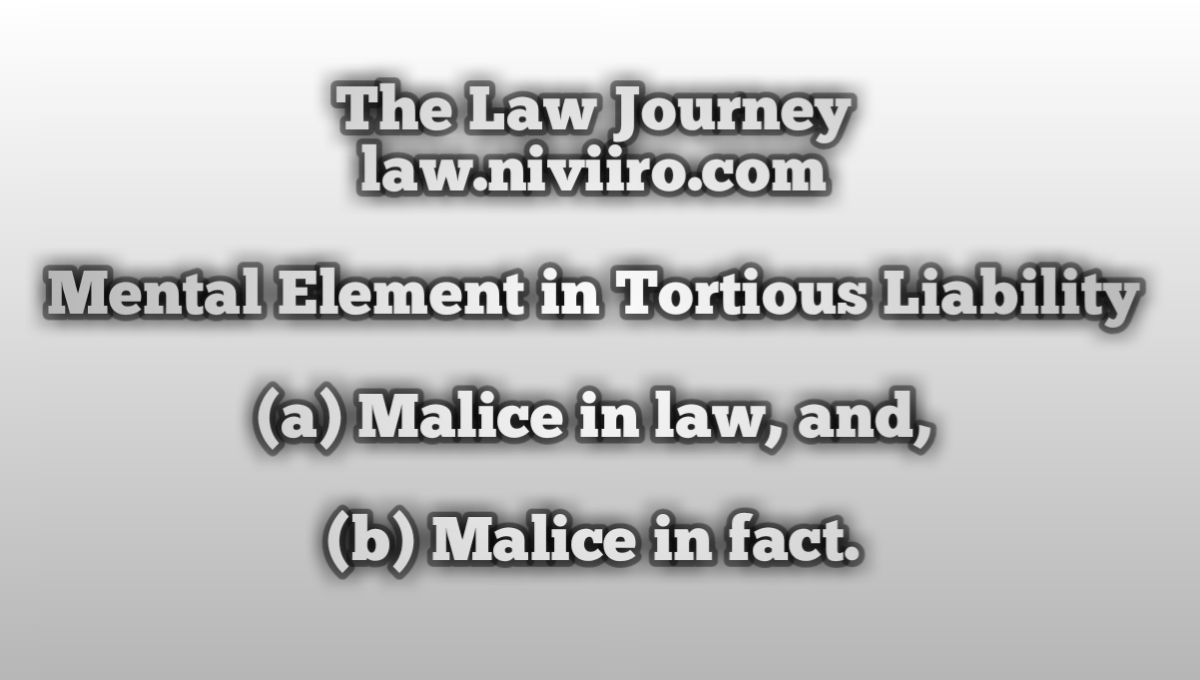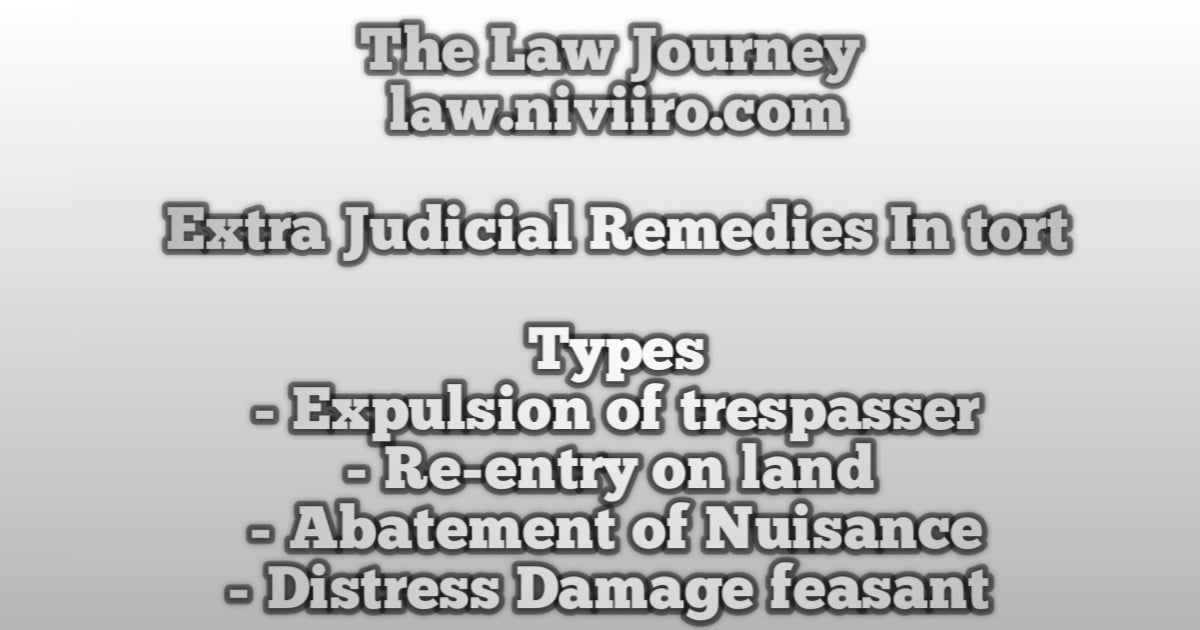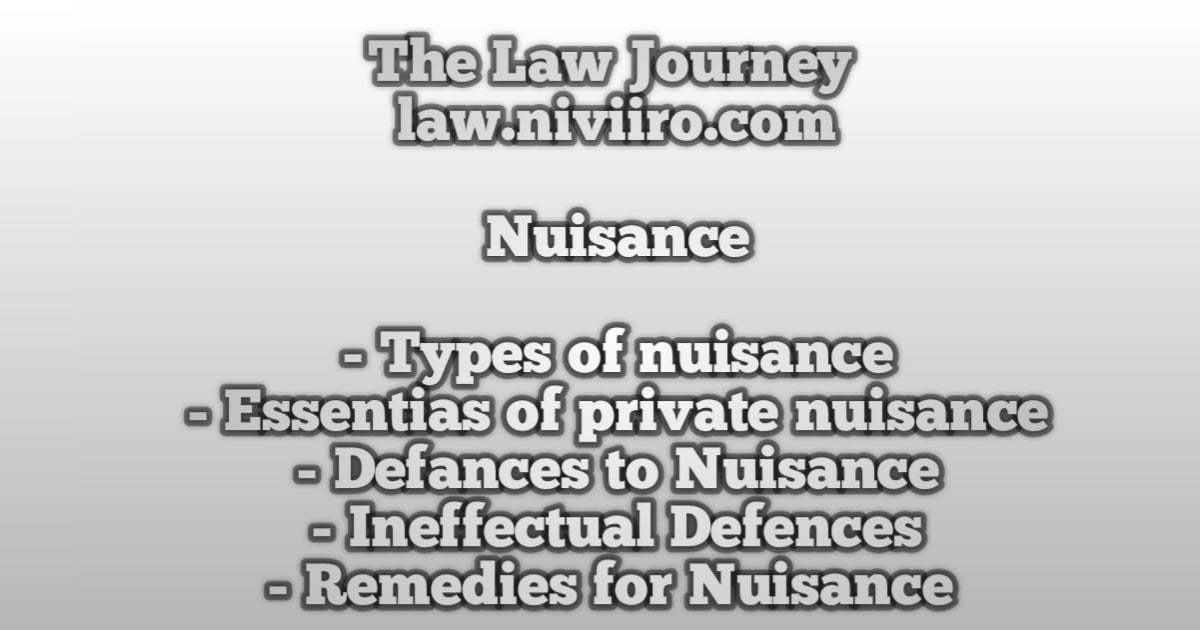Mental Element in Tortious Liability, Unlike criminal law, where mens rea or guilty mind is an important factor to determine a crime, in a tort, the state of mind of a person is not so important, and in fact irrelevant, except in certain cases (because unlike criminal law, the focus in the law of torts is not on punishing the wrongdoer, but vindicating the rights of the injured person). The term ‘malice’ has been used in two different sense :
(a) Malice in law, and,
(b) Malice in fact.
(a) Malice in law
In its legal sense, the term ‘malice’ means “a wrongful act done intentionally without just cause or excuse.” It is an ‘implied malice’ which the law infers from the circumstances of the case.
In Shearer v Shields (1914) A.C. 808, it was observed that a person who inflicted an injury upon another person in contravention of the law is not allowed to say that he did so with an innocent mind; he is taken to know the law, and he must act within the law.
He may, therefore, be guilty of malice in law, although, so far the state of mind is concerned he acts ignorantly and in that sense innocently. Thus, malice in law does not mean a bad motive or feeling of ill-will; it is not an act dictated by angry feeling or vindictive motive, as understood in common parlance.
Thus, a wrongful intention is presumed in case of an unlawful act done without just cause or excuse or for want of reasonable or probable cause (Smt. S. R. Venkataraman v Union of India AIR 1979 SC 49). A malicious defamatory statement means that the statement is made without lawful justification.
(b) Malice in fact
In its narrow and popular sense, the term ‘malice’ means an evil or improper motive. It is the malice in fact or ‘actual/ express malice’. When a defendant does a wrongful act with a feeling or spite, vengeance or ill will the act was said to be done ‘maliciously’.
Motive means an ulterior reason for the conduct e.g. motive for theft may be to buy food for his children or to help a poor man. As a general rule, malice in the sense of improper motive is entirely irrelevant in the law of torts.
The law in general asks merely what the defendant has done (i.e. the act), not why he did it. A good motive is no justification for an act otherwise illegal, and a bad motive does not make wrongful an act otherwise legal.
Related Post
Meaning of ‘Malice in law’ ?
In its legal sense, the term ‘malice’ means “a wrongful act done intentionally without just cause or excuse.” It is an ‘implied malice’ which the law infers from the circumstances of the case.
What do you mean ‘Malice in fact’ ?
In its narrow and popular sense, the term ‘malice’ means an evil or improper motive. It is the malice in fact or ‘actual/ express malice’. When a defendant does a wrongful act with a feeling or spite, vengeance or ill will the act was said to be done ‘maliciously’.
References
- Universals Law of Torts
- Law of Torts by RK Bangia (22nd Edition)
- A K. Jain law of torts
- Ratanlal and Dhirajlals Law of Tort book

















